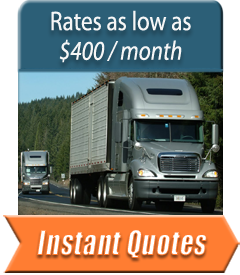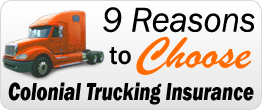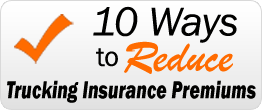The Importance of Reporting All Claims, All the Time
You’ve heard it before and here it is again: it is critical that report all claims, regardless of fault, right away to your insurance carrier. Here are some frequently asked questions from our clients:
1. What if I don’t have all of the information you are asking for?
Don’t worry about it. Just report the claim as soon as you are able to – they need to know WHAT happened and WHERE it happened, plain and simple. Your claim will then be assigned to a Claims Adjustor who will contact you to get the additional information they need. The main thing is that you report your claim promptly so insurance company can start working on your behalf. Failure to report any claim in a promptly manner will put your policy is jeopardy of cancellation.
2. I was involved in an accident with another party, but it wasn’t my fault. Should I report the claim?
Yes. Comparative fault laws vary from state to state. Many states allow the claimant to collect some portion of their damages from another party even if they were only partially responsible for the accident. We had a case where our client was rear-ended by another vehicle and our insured never reported the claim thinking it is the other party’s fault. After claim was investigated, our client was found to be partially at fault because he was parked improperly at time of claim. It is never OK to assume that claim was not your fault. Let your insurance company investigate the facts, after all, that’s what you pay them to do.
3. I was involved in an accident with another party, but the damage was very minor and they said they weren’t hurt. Do I still need to report the claim?
Yes. There are many times when a client fails to report a claim thinking the damages were minor and no one was injured, only to find out later that the party they hit obtained an attorney to represent them for their bodily injuries. Always promptly report any accident in which you are involved with another party. The best way we can keep your loss ratio down and offer low premiums is by getting prompt notice from you of any accidents you are involved in.
4. I’ve reported my claim. What are the next steps?
Once you have reported your claim to your insurance provider, it will be assigned to Claims Adjustor who will contact you to begin their investigation. Since each claim is different, the amount of documentation needed will vary.
5. I’ve just had an accident. What should I do?
1. Pull your vehicle at a safe location; activate your hazard lights. Check everyone for injuries. Do not leave the scene of the accident!
2. Call 9-1-1 to report any injuries as well as notifying the police if the accident involves another person, vehicle or property damage.
3. Stay at the scene in a safe place to collect information and do not discuss the specifics of the accident with anyone except the authorities.
4. Contact dispatch and notify them of the accident or contact your insurance provider as early as practical.
5. Collect photo and video evidence – use your smartphone to capture video and photo evidence. This is very important!
- Accident Scene – Vehicle positions, location identifiers
- Damage to the other vehicles or property
- Other party identification – license plate, insurance card, driver’s license
6. Collect additional info:
- Contact info of all occupants of the vehicles involved as well as witnesses
- Location of accident (intersection, street address, exit or mile marker)
- Other vehicle driver’s insurance company name and policy number
- Any other relevant accident related item
7. If your vehicle is equipped with a camera recording system, make sure that you preserve the accident video as this may be critical in establishing fault and handling claim quickly.
Did you know that we have an online claims system which allows you to report a claim, upload claims documents and track the progress of your claim? Contact us here to set up your online claims access.
We can provide the following types of truck insurance:
• primary liability
• physical damage
• motor truck cargo
• occupational accident
• workers compensation
• general liability
• broker bonds
We can provide trucking insurance for:
• owner/operators or fleets
• local, intermediate, or long-haul operations
• dump trucks, straight trucks, or tractor/trailers
• hot shot operators
• container haulers
• agricultural haulers
• any other specialized trucking operation
Some coverage programs can include:
• Rates starting at $400/Month/Truck
• Mileage or Revenue Reporting Form
• 24/7 Access to Certificate of Insurance
• Profit sharing physical damage policies
• Complimentary DOT safety programs
• “A” Rated Insurance Companies



